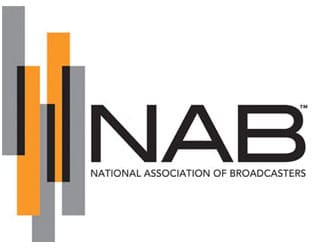By Brian Winnekins
Special to Streamline Publishing
WASHINGTON, D.C. — FCC Commissioner Geoffrey Starks is throwing his full support behind the AM for Every Vehicle Act, saying the FCC will provide support and expertise as the legislation advances.
In an address to the National Association of Farm Broadcasting‘s Washington Watch event, Starks acknowledged the crucial role AM radio plays in public safety and information dissemination, particularly highlighting its resilience and importance to the EAS infrastructure.
“You all are focused on ensuring AM radio receivers remain in vehicles, including electric vehicles,” said Starks. “You all should hear directly from me: I share that concern and that care that you all have here. Your listeners log in a lot of miles in many instances, and you provide them with that free, reliable source of industry news programming. And they need to be able to keep receiving it.”
He continued, “AM radio plays a critical, critical role in public safety infrastructure. Seven former heads of FEMA have explained AM’s resiliency combined with the long-distance AM signals. Propagation means the success of the National Public Warning System hinges on the use of AM radio. And I simply agree with that, so I’m glad to see the overwhelming bipartisan support.”
Starks invited feedback from broadcasters on how the FCC can further support the industry, particularly in handling interference issues like those caused by LED lights and other electronic devices in vehicles that can disrupt AM radio signals. He assured that the FCC is equipped to handle such complaints and conduct field testing to resolve interference issues.
Another AM radio issue addressed by Commissioner Starks: the affect of Pre-Sunrise Authority on broadcasters and the potential damage the band would suffer under a potential permanent Daylight Saving Time. Several broadcast groups have expressed concern that should DST become permanent, AM stations would face reduced power and signal strength up to 8a in wintertime, impacting listener numbers and revenue.
Starks says he wants to hear and address all of those concerns, reviewing changes to the Authority, if necessary. He also briefly discussed his support of the FM geo-targeting allowance implemented by the FCC.
He closed with optimism for legacy media, stating, “Radio and television stations are unique. I think there’s a lot going on dynamically in the media ecosystem here, but let me just say I think radio and TV stations are going to continue to shine…Most roadways in America provide that free reception that we’re talking about over the air, especially for many Americans who can’t afford another subscription in their household. Or those who just have fatigue from all the subscriptions that they already have.”
— With reporting from Cameron Coats, in New York





